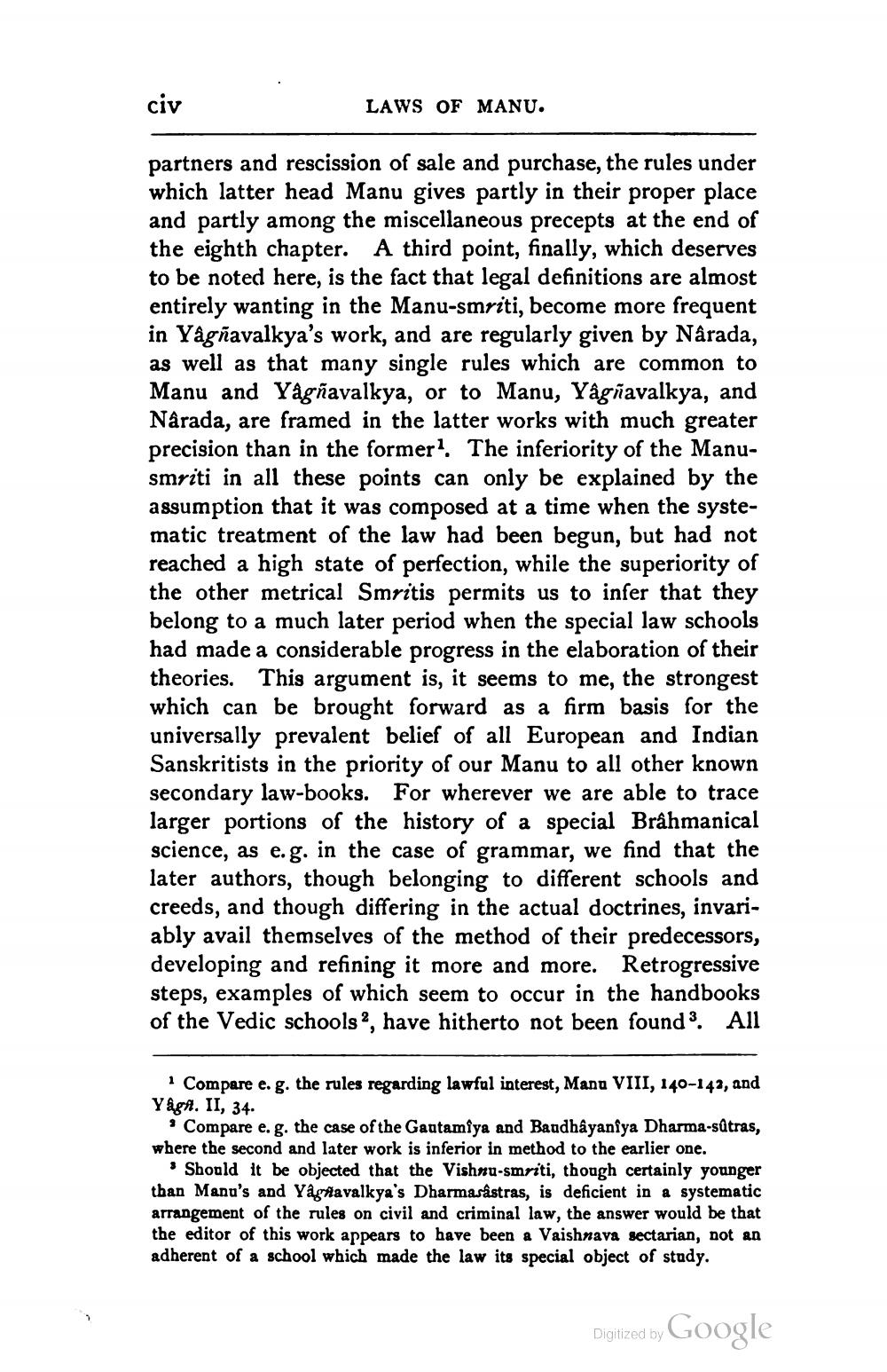________________
civ
LAWS OF MANU.
partners and rescission of sale and purchase, the rules under which latter head Manu gives partly in their proper place and partly among the miscellaneous precepts at the end of the eighth chapter. A third point, finally, which deserves to be noted here, is the fact that legal definitions are almost entirely wanting in the Manu-smriti, become more frequent in Yågñavalkya's work, and are regularly given by Nárada, as well as that many single rules which are common to Manu and Yågñavalkya, or to Manu, Yågnavalkya, and Närada, are framed in the latter works with much greater precision than in the former". The inferiority of the Manusmriti in all these points can only be explained by the assumption that it was composed at a time when the systematic treatment of the law had been begun, but had not reached a high state of perfection, while the superiority of the other metrical Smritis permits us to infer that they belong to a much later period when the special law schools had made a considerable progress in the elaboration of their theories. This argument is, it seems to me, the strongest which can be brought forward as a firm basis for the universally prevalent belief of all European and Indian Sanskritists in the priority of our Manu to all other known secondary law-books. For wherever we are able to trace larger portions of the history of a special Brâhmanical science, as e.g. in the case of grammar, we find that the later authors, though belonging to different schools and creeds, and though differing in the actual doctrines, invariably avail themselves of the method of their predecessors, developing and refining it more and more. Retrogressive steps, examples of which seem to occur in the handbooks of the Vedic schools, have hitherto not been found? All
· Compare e. g. the rules regarding lawful interest, Manu VIII, 140-142, and Yaga. II, 34.
• Compare e. g. the case of the Gautamiya and Bandhấyanîya Dharma-sútras, where the second and later work is inferior in method to the earlier one.
* Should it be objected that the Vishnu-smriti, though certainly younger than Manu's and Yatavalkya's Dharmasastras, is deficient in a systematic arrangement of the rules on civil and criminal law, the answer would be that the editor of this work appears to have been a Vaishnava sectarian, not an adherent of a school which made the law its special object of study.
Digiized by Google




